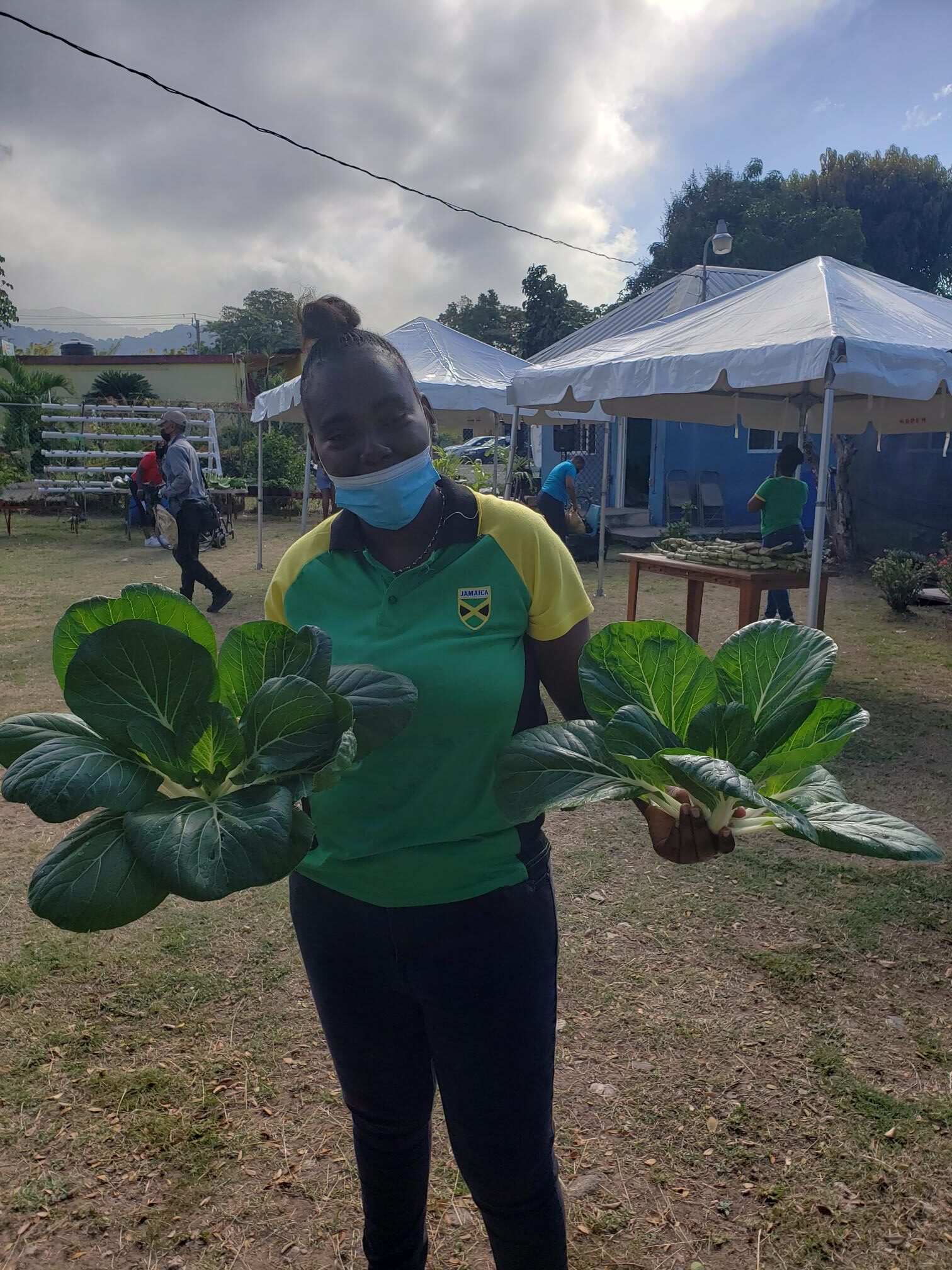Sustainable farming program improves food security and empowers women with disabilities
Story

With rising food costs in Jamaica, Hanah-Gale Fyffe wanted to know how to grow her own food and learn skills so that she could manage on her own.
In Jamaica, food can be expensive because of the country’s high import bill. Although many fruits and vegetables are grown locally, most items are imported because of trade agreements with other countries. Rising gas prices have also contributed to an increase in food prices over the past year.
Growing up in Golden River in Above Rocks, St. Andrew, the now 20-year-old says she had a good childhood, but there were challenges growing up with an intellectual disability. Her disability caused her to get low grades in school, she was misunderstood and in high school was bullied.
Living in a rural area, she walked a far distance to high school. She had few friends, was reserved, and didn’t talk to many people, but she enjoyed playing games like Dandy-Shandy (Jamaican version of dodgeball), cricket, marbles and football, often playing with her brothers.
All this changed when she was introduced to the Abilities Foundation’s Women’s Empowerment through Sustainable Farming program. The Cuso International partner initiative introduces women with disabilities to new skills and opportunities, focusing on sustainment through agriculture.
Over the course of six weeks, program participants learn small-scale farming and how to grow their own food, creating greater food security for them and their families. They visit markets and learn how to sell their products. Participants also learn banking skills and how to open a bank account.
“It is transformational for the participants,” says Tameka Hector-Boyd, Cuso International Program Adviser. “They do not want it to end.”
Through the program, Hanah-Gale learned how to start a vegetable garden at home, how to manage her finances and how to make sales.
“It feels good to sell vegetables at the Farmer’s Market and collect money,” says Hanah-Gale. “The program is teaching women with disabilities how to be independent and how to start our own business. If it didn’t exist, I would not have the opportunity to learn about farming.”
Since getting involved in the program, Hanah-Gale is more confident in her abilities. Being a part of the project helped her apply for jobs and added more to her resume. Currently she is training for a job opportunity.
“I feel proud,” she says.
Her future goals include starting her own business and selling food, owning a house and cars.
“It is very beneficial for women with disabilities, it can help us start a business in farming and know how to budget and handle money. I think they should keep supporting projects like these because there are a lot of women and men with disabilities that need the opportunity.”